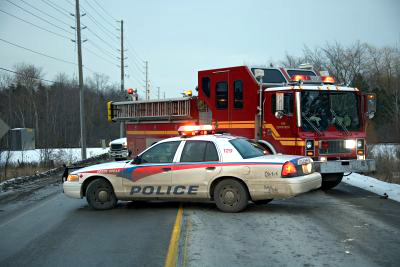|
|
|
|
|
|
|
Welcome to the Policetraining.net Newsletter
In this issue we continue to bring you important training topics of current interest.
Thanks for subscribing, and please forward this along to a law enforcement collegue you think may benefit.
|
|
- Sponsored By -  |
|
|
New on Policetraining.net
Sign up for custom notifications today! Whether you are interested in a particular training topic or classes in your specific region or zip code, we make it easy for you to receive an email notification when a new posting meets your criteria. We also make it easy to cancel, so why not customize your notifications today?
You can choose multiple topics and any combination of search criteria!
|
|

Interview Before Interrogating
By John Reid & Associates
Throughout our seminars and textbooks The Reid Technique emphasizes the distinction between interviewing and interrogating, and the importance of conducting a non-accusatory interview before an accusatory interrogation. A recent legal decision reinforces this lesson:
A food court cashier rang up a customer's purchases for several food items, but the customer did not have sufficient cash to pay for the purchase, so the cashier voided the transaction. The customer went to a service counter inside the store to pay the difference with a credit card and returned to the cashier, displayed his credit card receipt, and paid for the remaining items in cash. Surveillance cameras appeared to show the cashier accepting $31 in cash, but voiding out the sale.
Three days later the cashier was summoned to the manager's office and aggressively accused of stealing thirty-one dollars from the store (the amount of the voided transaction). The accusatory interrogation, involving three loss prevention staff who threatened the cashier with possible arrest, lasted for two hours before the emotionally distressed employee stomped out of the room. The cashier was suspended for three days for "acts of dishonesty."
article continues >
|
|
~~~~~~~~~~~~~ A Message From Our Sponsor ~~~~~~~~~~~~~

American Military University is a leading online education provider to the law enforcement community, offering more than 87 different undergraduate and graduate degree programs in areas beyond criminal justice, such as intelligence studies, homeland security, emergency and disaster management, public administration, and management. AMU maintains active education partnerships with the National Fraternal Order of Police, FBI National Academy, Los Angeles County Sheriff's Department, Los Angeles Police Department, and Southern Police Institute. If education is an incentive or requirement within your department, contact AMU today to find out if your academy or in-service training qualifies you for credits that may place you closer than you think toward earning your degree.
~~~~~~~~~~~~~~~~~~~~~~~~~~~~~~~~~~~~~~~~~~~~
|
|

What Slowed Me Down: A Cautionary Tale About Excessive Speed
As I sat outside the courtroom awaiting my turn to be questioned in front of the Grand Jury, a million things ran through my mind
It's no secret that more cops have died in car crashes than from bullets in the last ten years. All too often the reasons for those crashes are excessive speed and driving beyond the capability of the driver and vehicle. For some the only way to find out what those limits are is to exceed them, sometimes with tragic results.
Unfortunately, for a lot of cops what finally gets us to slow down is an incident that threatens to end our careers and sometimes our lives. That type of experience can take many forms.
In my case, it was a Grand Jury
The Dust, the Darkness, the Speed
It was a hot humid August night at around 0230 hours as the squad car traveled down the highway. Off the side of the road in a field a pickup truck could be seen tearing around the alfalfa, kicking up dirt as it spun in circles.
|

The Cure is Worse than the Disease
By Rich De Paris, Ph.D. is the director of the Center for Effective Leadership which specializes in leadership training and organizational development for law enforcement.
American law enforcement has evolved from a relatively simple job performed by relatively unskilled workers to a complex social enterprise performed by highly skilled professionals. In my view, that is the key to understanding the managerial approach required for sustained performance in our police agencies. Unfortunately, the culture of our profession is such that while we use management terminology consistent with overseeing the work of skilled professionals, in practice we all too often continue to manage in a fashion more suited to unskilled workers. The end result is that we try to govern rather than lead, strive to control the workforce rather than use its potential, and attempt to shape conduct by regulating behavior rather than by modeling and instilling values. In many of the law enforcement agencies with whom I've worked, the unsettling reality is that many of their problems exist not in spite of management's best efforts but because of their best efforts. The cures we use to try to address organizational problems often come full circle and are, in fact, the cause of the problems we wish to eliminate. In the medical field, they have a term for this: iatrogenic disease - physician induced disease. I would suggest that the law enforcement mindset encourages iatrogenic management that oftentimes creates the problems our actions seek to suppress. The police culture encourages a short-term orientation that focuses upon suppressing problems in the present then legislating to prevent them in the future. While the sense of this is seemingly clear, the evidence is that this approach, when the SOP of the organization, does more harm than good.
article continues >
|
View a list of law enforcement training offered throughout the country.
|
|
|
|
|